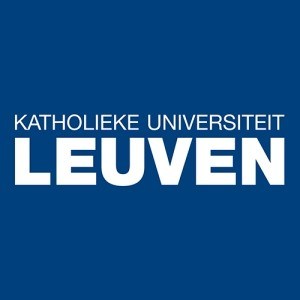Photos of university / #uantwerpen
The Government and Law program at the University of Antwerp offers a comprehensive and in-depth exploration of the legal and political systems that shape modern societies. Designed for students interested in understanding how laws are made, enforced, and interpreted, as well as the functioning of governmental institutions, this programme combines theoretical knowledge with practical skills to prepare graduates for careers in public administration, legal consultancy, policy analysis, and related fields. Throughout the course, students will examine key areas such as constitutional law, administrative law, international law, and European Union law, gaining insight into both the national and international legal frameworks. In addition to law-specific modules, the programme includes subjects in political science, public policy, and ethics, fostering a multidisciplinary understanding of governance and legal processes. Students will develop critical thinking, analytical reasoning, and effective communication skills essential for engaging with complex legal and political issues. The curriculum emphasizes the importance of research, providing students with the tools to conduct thorough legal and political analysis, and encouraging active participation in debates and simulations to prepare for real-world challenges. The University of Antwerp's strong links with governmental institutions and legal organizations also offer students valuable internship and networking opportunities. With a focus on fostering responsible citizenship and effective governance, the program aims to equip graduates with the knowledge and competencies needed to contribute meaningfully to societal development and the rule of law. Whether you are interested in pursuing a career in legislation, legal advising, policy development, or public administration, the Government and Law program provides a solid foundation for your professional future in the dynamic fields of law and governance.
The program covers four lines of research which emphasize different but overlapping topics.
- Multilevel good governance. This priority research line fits the UA’s ‘Emerging Research Domain’ on federalism, multilevel governance and globalization. The evolution towards a ‘multilevel’ context and a ‘governance’ model within this multi-level context, as well as its impact on fundamental legal principles, accountability, fundamental rights, institutional design, informal processes and substantive rules are put central.
- Governance and public decision making. This line, rather than studying the interdependence of different legal orders (i.e. the ‘multilevel context’), focuses on aspects of governance within a single political level. Principles of proper rule-making, administration and due process are regarded as guiding precepts in this regard. Considerable attention is paid to the way in which various public and private actors become partners in legislative, administrative and judicial decision-making.
- Governance in diverse societies. This research line focuses on the legal challenges to governance in diverse societies. A diverse society is understood as a society composed of members with different national, cultural, religious, regional and/or ethnic identity. The research comprises access of non-citizens to residence and citizenship, citizenship as a tool for full membership of society and the exercise of rights and freedoms by members of a diverse society, particularly those in a minority position.
- Rule of law and constitutionalism. This research line feeds the former ones by providing both a theoretical framework on fundamental principles of constitutional law and a more empirical account of the role of the various actors in both constitutional law and constitutional practice, such as Constitutional Courts, Parliament or political parties.
Requirements
- Applicants must hold a master’s degree
- TOEFL (Test of English as a Foreign Language): minimum score of 550 for the paper-based test or 79 for the Internet-based test. Information about this test is available at the TOEFL-website. IOB does not accept the TOEFL ITP.
- IELTS (International English Language Testing System): minimum score of 6.5 and a minimum score of 6.0 on each component. Information about this test is available at the IELTS-website.
- A copy of your valid passport or identity card/a curriculum vitae
- A motivation letter
- A legalised copy of your degree certificate (please read more information on legalisation)
- Applicants that are enrolled in the final year should submit an original and signed letter from their college or university confirming that they are expected to finalise the program at the end of the current academic year
- A copy of your academic transcripts, provided with a stamp of the university
Scholarships
- An assistant mandate - salaried assistant;
- An appointment to a research project that was requested by a promoter and subsidized assigned by internal (BOF) or external (international, national, regional, local) research resources;
- A personal doctoral fellowship (eg FWO-aspirant and analog mandates, IWT grant for strategic basic research, temporary mandate (opvangmandaat) of the Special Research Fund - BOF specific funds that grant scholarships);
The Bachelor of Law and Government program at the University of Antwerp offers students a comprehensive foundation in legal principles, governance, and public administration. The curriculum is designed to equip students with the analytical skills and legal knowledge necessary to understand and navigate complex legal systems, governmental structures, and public policies. Students learn about constitutional law, administrative law, European law, and international law, gaining insights into how legal frameworks shape governmental operations and societal interactions. The program emphasizes critical thinking, ethical considerations, and practical application of legal knowledge, preparing graduates for careers in government agencies, legal consultancy, public affairs, and nonprofit organizations. Throughout the course, students engage in case studies, simulations, and internships to gain hands-on experience and develop a nuanced understanding of how law influences governance at local, national, and European levels. The program also highlights the importance of interdisciplinary approaches, integrating political science, economics, and sociology to provide a holistic understanding of public governance. Upon graduation, students are well-positioned to pursue further legal studies or enter the workforce in roles that require a solid understanding of legal and governmental systems. The university's reputation for academic excellence, combined with its strategic location in Antwerp, offers students unique opportunities for networking, internships, and involvement in policy debates and legal research. The program prepares graduates not only with legal expertise but also with critical communication skills, problem-solving abilities, and a commitment to public service, aligning with contemporary challenges faced by governments worldwide.

